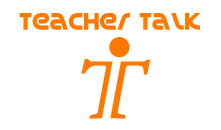Consultation on the draft
Australian Curriculum: English, mathematics, science and history
The draft Australian Curriculum for English, mathematics, science and history (K-10) will be available for consultation from 1 March 2010 to the end of May 2010. The draft curriculum for these learning areas will be available online through the Australian Curriculum Consultation Portal, and will include content
The consultation website will be available for everyone to read, review, download or print the draft K-10 curriculum. Opportunities will be available to provide feedback on the draft curriculum On-line survey
Teachers and other stakeholders in the broader education community will be able to review the curriculum materials and provide targeted feedback through an online survey.
BACKGROUND
The Curriculum Development Process, outlines four stages in the development of the Australian curriculum.
Phase 1 - The Australian Curriculum
The Australian curriculum will be developed in the first phase for English, mathematics, science and history.
In May 2009, the Interim National Curriculum Board (NCB) published The Shape of the Australian Curriculum: English, Mathematics, Science and History.
Phase 2 – The Australian Curriculum
The second phase of the Australian curriculum development involves geography, languages and the arts. Initial shape papers for geography, languages and the arts will be available for public consultation in mid 2010.
Phase 3 - The Australian Curriculum
The third phase of the Australian curriculum development involves design and technology, health and physical education, ICT, economics, business and civics and citizenship.
The Shape of the Australian Curriculum identifies ten general capabilities to be addressed in the Australian curriculum.
The General Capabilities
The general capabilities are literacy, numeracy, ICT, thinking skills, creativity, self management, teamwork, intercultural understanding, ethical behaviour and social competence. Particular attention has been given to the incorporation of literacy, numeracy, ICT, thinking skills and creativity into the draft Australian curriculum for English, mathematics, science and history.
Australian Curriculum Fact Sheet
This fact sheet summarises the progress on the development of the Australian curriculum for English, mathematics, science and history.
Pages
Friday 26 February 2010
Wednesday 3 February 2010
NSW DET implements a new Code of Conduct.
The aim of this Code is to establish a common understanding of the standards of behaviour expected of all employees of the Department of Education and Training.
The Code places an obligation on all of us to take responsibility for our own conduct and work with colleagues cooperatively to establish consultative and collaborative workplaces where people are happy and proud to work.
This Code of Conduct applies to all employees of the NSW Department of Education and Training, including the TAFE NSW whether employed on a permanent, temporary or casual basis.
Implementation date: 27 January 2010
Labels:
Australia,
Department of Education and Training,
NSW
Monday 1 February 2010
Official Blog World Maths Day 2010
World Maths Day has been created for
The official competition runs for 48 hours, for as long as it is
3 March somewhere in the world.
Sandy Beach is registered.
Class teachers need to confirm their interest so I can upload individual students names.
Practice can start as soon as registration is finalised.Register from 1 February 2010
Registrations close 1 March 2010
Each student is limited to a maximum of 500 games (each game lasts 60 seconds) during the 48 hour period.
Prizes will be awarded to the top students in each age category, ages 5-8, ages 9-13 and ages 14-18. Even teachers and parents will want to take part! There has been a new category added this year.
Each game lasts 60 seconds and 1 point per correct answer is awarded.
Students play at home and at school against other students around the world in live games of mental arithmetic. A 2010 app will soon be available for students to use on their iPods and iTouchs. Students who answer the most questions appear in the Hall of Fame. Students cannot select their level but will be moved to higher levels up as they progress.
This is a truly unique world event and a fantastic way to promote numeracy within your school. Past results show that students will make significant improvements in their mental arithmetic skills and have fun in the process.
..and it's absolutely free of charge
download this World Maths Day poster ..and it's absolutely free of charge
Subscribe to:
Posts (Atom)

![Reblog this post [with Zemanta]](http://img.zemanta.com/reblog_b.png?x-id=3c07d6ac-513a-472f-8cdf-e75d97c0ae55)



![Reblog this post [with Zemanta]](http://img.zemanta.com/reblog_b.png?x-id=1d81dbb7-0e34-4b9e-91bb-870758d8c4a4)